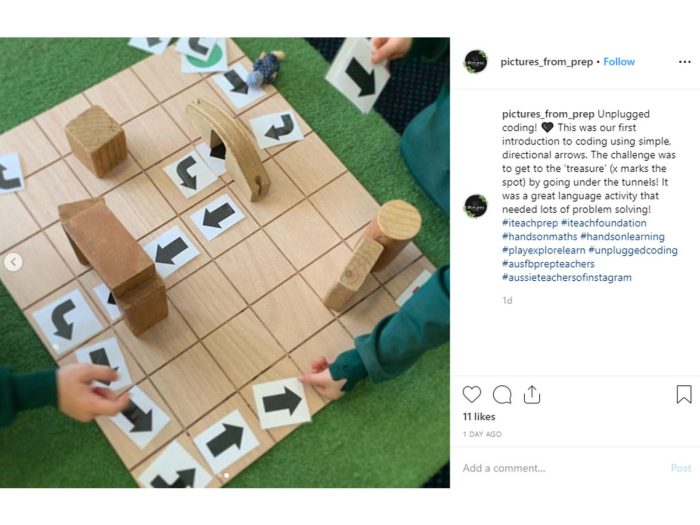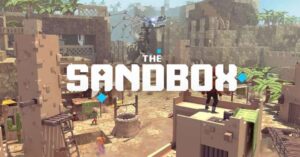
Roleplay-based learning tools offer a unique approach to education, transforming traditional learning methods into engaging and interactive experiences. By allowing students to step into various roles, these tools foster creativity and critical thinking, making the learning process both enjoyable and effective.
From board games to online platforms, the landscape of roleplay-based learning tools is diverse and rapidly evolving. This overview will explore the significance of these tools, their various types, and the numerous benefits they bring to educational environments, highlighting how they can enhance student engagement and learning outcomes.
Roleplay-based Learning Tools Overview

Roleplay-based learning tools have emerged as innovative methods in education, offering a dynamic way to engage students in the learning process. These tools allow learners to step into different roles and scenarios, thereby enhancing their understanding of various subjects and skills. By simulating real-world situations, roleplay creates a more immersive and impactful educational experience.Roleplay-based learning tools come in various forms, each designed to cater to specific educational goals and settings.
Some of the most popular types include:
Types of Roleplay Learning Tools
Understanding the different types of roleplay learning tools can help educators select the appropriate tool for their specific teaching objectives. Here are some common types:
- Simulation Software: These are digital platforms that recreate real-life scenarios, allowing learners to experiment and make decisions. Examples include simulations in medical training or business management.
- Roleplay Games: These are structured games where participants assume roles and engage in scenarios that reflect real-life challenges. They promote teamwork and critical thinking.
- Drama Techniques: Utilizing acting methods, educators encourage students to perform scenes that relate to the curriculum, enhancing creativity and empathy.
- Case Studies: Students analyze and roleplay different stakeholders in a case, facilitating deeper understanding of complex issues.
The benefits of using roleplay in educational settings extend beyond mere engagement. They encompass a wide range of cognitive, social, and emotional advantages.
Benefits of Roleplay in Education
Integrating roleplay into learning environments offers numerous advantages that contribute to a well-rounded educational experience. The following points highlight the key benefits:
- Enhanced Engagement: Roleplay captivates students’ attention and motivates them to participate actively in their learning process.
- Development of Critical Thinking: By simulating real-life scenarios, students develop problem-solving skills and learn to analyze situations from multiple perspectives.
- Improved Communication Skills: Roleplay encourages students to express their thoughts and ideas clearly, fostering effective communication and collaboration.
- Increased Empathy: Engaging in roleplay allows students to see the world through different lenses, promoting understanding and compassion for others.
- Safe Environment for Experimentation: Roleplay provides a safe space for students to experiment with new ideas and behaviors without real-world consequences.
“Roleplay transforms the classroom into a dynamic learning environment where students can thrive through active participation.”
Types of Games as Learning Tools
Games can serve as powerful learning tools, especially in the realm of roleplay-based education. By engaging learners in immersive experiences, games encourage critical thinking, collaboration, and creativity. This approach not only makes learning enjoyable but also enhances retention and application of knowledge in real-world scenarios.
Board Games as Roleplay-Based Learning Tools
Board games have long been a staple in educational settings, offering interactive and engaging ways to reinforce knowledge. They facilitate roleplay by allowing players to assume various roles, making decisions, and navigating scenarios that simulate real-life situations. This method encourages teamwork and communication, essential skills in both academic and professional landscapes.
For instance, games like “The Game of Life” allow players to experience life choices, such as career decisions and financial management, enabling discussions about real-world implications. Similarly, “Catan” fosters negotiation and resource management skills, as players must strategize while dealing with others, mimicking real-life economic interactions.
Card Games Incorporating Roleplay Elements
Card games can also be effective roleplay-based learning tools, integrating storytelling and strategy within their gameplay. These games often require players to think critically while engaging in role-specific scenarios. They encourage creativity and social interaction, vital components of experiential learning.
Examples include “Dungeons & Dragons,” where players create characters and navigate through narratives crafted by a Dungeon Master. This game emphasizes collaborative storytelling and problem-solving. Another example is “Gloom,” in which players craft tragic stories about their characters while trying to outplay their opponents, merging strategy with roleplay in a unique way.
Online Games Enhancing Roleplay-Based Learning Experiences
Online games have transformed the landscape of roleplay-based learning, offering expansive worlds for exploration and interaction. These games often feature complex narratives and character development, allowing players to immerse themselves in educational contexts from anywhere in the world.
Massively Multiplayer Online Games (MMOs) like “World of Warcraft” encourage teamwork and strategy as players work together to achieve common goals. Educational MMOs, such as “Minecraft: Education Edition,” provide a platform for creative learning where students can build and explore while engaging in problem-solving tasks. These games not only enhance technical skills but also foster social skills, making them integral to modern educational methods.
Integration of Various Gaming Formats

In the evolving landscape of education, integrating various gaming formats into learning methodologies enhances engagement and retention. One notable area of exploration is how traditional roleplay learning tools can be augmented or compared with arcade and coin-op games. This integration not only offers diverse learning experiences but also caters to different learning styles and environments.
Comparison of Gaming Formats
When considering the integration of gaming formats into educational curricula, it’s essential to understand the distinctions between arcade and coin-op games and traditional roleplay learning tools. Each format has unique characteristics that contribute to the learning experience.Arcade and coin-op games typically emphasize immersive gameplay and quick feedback loops, providing players with immediate rewards for their actions. This instant gratification can motivate students but may lack the deeper narrative and character development often found in traditional roleplay learning tools.
In contrast, traditional roleplay learning tools focus on collaborative storytelling and character-driven experiences, which foster critical thinking and emotional connections. This approach encourages learners to explore complex scenarios and develop problem-solving skills over time. The key features that differentiate these formats can be summarized as follows:
- Engagement Dynamics: Arcade games captivate players through fast-paced action, while roleplay tools engage learners by inviting them to invest emotionally in their characters and stories.
- Learning Depth: Traditional roleplay games often promote deeper learning through exploration and interaction, whereas arcade games primarily facilitate skill acquisition through repetition.
- Collaborative Elements: Roleplay tools encourage teamwork and communication, while arcade games may limit player interactions to individual performance.
- Time Commitment: Roleplay games typically require longer, sustained engagement, while arcade games are designed for shorter play sessions.
Key Features of Video Games Supporting Roleplay Learning
Video games have been recognized for their ability to support roleplay-based learning methodologies. Key features that enhance this learning approach include:
- Interactive Environments: Immersive worlds allow students to navigate challenges and scenarios, promoting experiential learning.
- Character Customization: Players can create and develop characters, which fosters personal investment and motivation in the learning process.
- Narrative Structures: Engaging storylines encourage critical thinking as learners make choices that affect outcomes, reinforcing cause-and-effect relationships.
- Feedback Systems: Immediate feedback mechanisms help students understand their progress and areas for improvement, facilitating adaptive learning.
Integration of Other Games into Educational Curricula
In addition to arcade and roleplay games, various other gaming formats can be effectively integrated into educational curricula to enhance roleplaying activities. Unique aspects of these games often align well with educational objectives.One example is puzzle-based games, which require players to engage in logical reasoning and problem-solving. These mechanics can be seamlessly integrated into roleplay scenarios, encouraging students to think critically while navigating complex narratives.Another format is simulation games, which replicate real-world processes and challenges.
By incorporating simulation games into the curriculum, educators can provide learners with opportunities to experiment and apply theoretical knowledge in practical situations.The integration potential can be categorized as follows:
- Puzzle Games: Foster critical thinking and problem-solving within roleplay contexts.
- Simulation Games: Offer realistic environments for applying learned concepts to real-world situations.
- Strategy Games: Encourage strategic planning, resource management, and decision-making skills essential for roleplaying.
- Board Games: Facilitate face-to-face interaction and collaboration, echoing the social aspects of roleplaying.
Ending Remarks
In summary, roleplay-based learning tools not only enrich the educational experience but also cultivate essential skills such as teamwork, empathy, and problem-solving. As education continues to adapt to new challenges, integrating these innovative tools into curricula will be crucial in preparing students for the complexities of the modern world. Embracing these methods ensures that learning remains both relevant and impactful, offering students a dynamic pathway to knowledge and understanding.
Expert Answers
What are roleplay-based learning tools?
They are educational tools that use roleplay to enhance learning experiences, allowing students to engage actively in their education.
How can roleplay-based learning tools benefit students?
These tools promote critical thinking, creativity, and collaboration, helping students develop essential skills in a fun and engaging way.
Are roleplay-based learning tools suitable for all age groups?
Yes, they can be adapted for various age groups, from young children to adults, with appropriate content and complexity.
Can roleplay-based learning tools be integrated into online education?
Absolutely! Many online platforms incorporate roleplay elements to create immersive and interactive learning environments.
What types of roleplay-based learning tools are most popular?
Board games, card games, and online simulations are among the most popular roleplay-based learning tools in educational settings.





